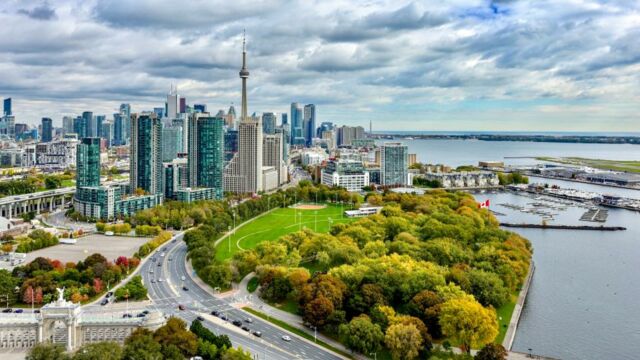Coronavirus in Canada: quarantine, flights, closures, and everything else you need to know

Following a sudden upsurge in the number of individuals infected with coronavirus in Canada, the country’s government has recently introduced additional restrictions and guidelines aimed at containing the outbreak.
The current number of COVID-19 cases in Canada has almost reached 600, with 8 deaths. The wife of Prime Minister Justin Trudeau, Sophie Grégoire Trudeau, has tested positive for coronavirus, prompting the PM to self-isolate at home.
Discover our latest podcast
We’ve compiled everything you need to know about the current situation in Canada, including flights, events, and public places and venues – fully up to date on March 18th, but subject to change.
More under this adMore under this adFlights
On March 16th, Canada’s Prime Minister Justin Trudeau announced that beginning on Wednesday, March 18th, the country would be closing its borders to all but Canadian and US citizens.
This means that now, only permanent Canadian residents and their immediate families, US citizens, diplomats, and air crews are allowed entry into Canada.
More under this adMore under this adAssuming you belong to one of these groups and travel to Canada, you will be asked to self-isolate for a period of 14 days immediately after arrival. In effect, this means that you are obliged to stay at home (or another permanent location), avoiding social contact.
All but four airports will be closed. Montreal, Toronto, Calgary, and Vancouver airports will remain open, and almost all international flights will be redirected to these cities.
More under this adMore under this adDue to the staff shortages and low ticket sales experienced by airlines as well as the border restrictions in Canada and elsewhere, most flights are being cancelled – if you’re planning on flying, make sure you check regularly whether your flight is still scheduled to go ahead.
If you do fly, please take care to minimize the risk of infection with COVID-19 at the airport and during the flight. Canadian healthcare guidelines don’t differ in any way from the globally distributed advice. Keeping a safe distance (at least 6ft) from others is recommended, as is washing your hands properly as often as possible and frequently disinfecting them with antibacterial gel. You should also avoid touching your face and, if you need to sneeze or cough, cover your mouth with the crook of your elbow rather than your hand to protect others.
More under this adMore under this adPublic places
Five Canadian provinces with the highest rates of infection, including Ontario and Alberta, have declared states of emergency. This resulted in the immediate closure of bars, cinemas, childcare facilities, recreation centres, and places of worship.
Restaurants and cafes are allowed to remain open, although they may only offer takeout and delivery options rather than accepting dine-in guests.
More under this adMore under this adPharmacies and shops selling food and other essential items are open, and public transport is set to remain in operation, too.
Quarantine
All travellers arriving in Canada from other countries are being asked by Canadian public health leaders to self-isolate for 14 days. Essentially, self-isolation involves staying at home and avoiding contact with other people. In case of developing symptoms of coronavirus (cough, fever, difficulty breathing) during this period, individuals are required to call a health care professional or public health authority and remain in self-isolation until medical help or advice arrives.
More under this adMore under this adThose who have been diagnosed with coronavirus or are waiting for test results are implored to isolate – stay at home until such a time as the public health authority decides they are no longer contagious. Of course, if symptoms worsen, call a healthcare provider.
Education
All schools in Canada are currently closed – the specific periods for which they will initially remain closed depend on the province. For instance, in Ontario, schools will be closed until April 5th. This period may be subject to extension, depending on the circumstances in the country.
More under this adMore under this adMost universities, too, are operating online and otherwise remote classes, in favour of face-to-face lectures.
Arts, entertainment, and events
The majority of arts and entertainment events have been cancelled or postponed, including Toronto’s Canadian Screen Award, Canadian Folk Music Awards, and the Canadian International Documentary Festival. This comes as a result of several provinces banning gatherings of 250 people or more.
Museums, theatres, art galleries, and other performance venues are all closed, as are tourist attractions and casinos.
As in the US, all professional sports leagues with Canadian teams have suspended their seasons, including the NHL, the Canadian Hockey League, the NBA, Major League Baseball, and Major League Soccer among others.
More under this adMore under this adPlease note that while the above information is correct at the time of writing, the situation is ever-changing. It’s important to keep checking for updates and depend on the latest information.